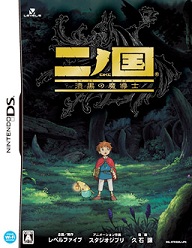« Shop Watch April 2015 | Main | RPG Deals 4/5 – 4/11 »
The Need for the Past
By Russ | April 5, 2015 at 4:01 am
The past contains a lot of neat things to keep in mind when plodding aimlessly towards the future. Nostalgia is an emotion we tie to the past which is nice to engage in on a non-frequent basis. Hindsight’s a relevant way of looking back at the past which reminds you that no, that was not a cut on your date’s lip and yeah, you should get that sore checked out. History is physical records of the past, and a lot of people actively try to preserve history since history can be used to teach others in the future. I mean, normally we try to preserve it unless we think it’s disposable. Like entertainment.
I, like many others who grew up with an SNES, have a huge nostalgia boner for SNES-era RPGs like the Final Fantasy series, Chrono Trigger, Lagoon, and stuff like the Lufia games. When these titles found a home at Gamestop because I am an idiot, hindsight hit me with a lot of regret. History would teach me to not do that again, even though I totally would with some PSX games for, of all titles, Okage: Shadow King. Which I never beat.

My point is you’ve probably never heard of Okage or Lagoon, and you may have heard of the Lufia games. These games were not superb – though Lufia II gets a lot of praise – but the titles seem to have fallen to the wayside in RPG history. It’s easy to measure the success of Final Fantasy, the accomplishments of Chrono Trigger, and the popularity of Persona. We have the data. But we seem to have lost the road it took to get there.
Console games, which, until the PSX era used cartridges; have been lax in finding preservation. While Nintendo’s Virtual Console and Sony’s PSN Classics have seen some use, these services often fall incredibly short of the goal of making older titles available for new audiences. Take a look at Earthbound for the SNES. The Virtual Console released in late 2006, but it would not be until 2013 the game would see release on the Wii U Virtual Console. About 7 years would pass before a well-received and fan-favorite title would see release. There may have been music rights at the core of the delay, but that doesn’t negate the importance of preservation.
JRPGs are in my mind when I write this piece as games which can be lost forever due to a few reasons. Without North American offices a la Square Enix or NISA, JRPGs can be licensed by a different North American company for a fee. The NA company can then lose the license by simply not renewing years down the road when the game is no longer profitable. Japan is just as wasteful as the United States in regards to consumerism. They may not keep the original data or game after a set period of time because it is no longer profitable. Several games’ original source code has been lost over time due to points the above.

Sometimes a company simply does not think licensing a title or bringing it to North America would be profitable. It’s only been this past console generation where North America has seen the most games in the Tales series gain a release. Vesperia saw a 360 release (though not its PS3 version). Graces skipped its Wii release but an enhanced port landed on the PS3. Xillia 1 and 2 were released on the PS3 as well, with Zestiria supposedly seeing a 2015 release. Then there’s Abyss on the 3DS and Hearts R on the Vita. But during the PS2 and early DS lifespans? Good luck finding half the Tales library.

Still sitting in Japan-only obscurity, among others.
I’m picking on Japanese RPGs a lot here because preservation is pretty common for many North American titles which had simultaneous releases on PCs, which used PC-compatible formats such as floppies and unlocked CDs. Elder Scrolls: Arena? Daggerfall? Here’s a link to buy that shit. Or hell, here’s a link to an online archive where you can play a lot of early PC titles.
But console games — for years spearheaded by the Japanese companies which made the medium popular after Atari done fucked it up — apparently didn’t keep an eye on the future. In America (And likely Japan) video games were marketed towards kids. It wouldn’t be until the late PS2 era when the buying power transitioned to adults who never “outgrew” the hobby – and even then the social perception of video games as a toy for children is still only just changing as games like Call of Duty, Assassin’s Creed, and whatever hot title gets renewed every year (with a Mature rating and lack of innovation) are marketed towards adults. But those years – those decades – as kid’s toys lent to a lack of permanence.

Just as countless Golden and Silver Age comics found a way to dumpsters, as several Transformers and JEM Dolls found a way to secondhand stores; video games found a way to some form of oblivion. We, as players of the medium, have a whole business called Gamestop which takes on these old games. Gamestop bought out other, smaller franchises with a Highlander’s mantra and gorged on the competition until there could be only one. The business was profitable, but despite the efforts of Best Buy, Wal-Mart, and others; Gamestop still remains the only game in town.
Gamestop doesn’t catalog games for longevity, though. Entire systems are phased out in favor of bringing in newer consoles because it is a sound business move. The PS2 is likely the latest console to be removed; I’d expect the Wii to not be far behind. Gamestop caters to its customers, and while gaming may have slid to the middle-aged employed white male, handhelds still remain firmly entrenched in the minds of the populace as toys and thus a new generation learns to dispose. Or trade-in, if you will.
It’s not just licensing, trade-ins, and disposal which may determine a title’s fate. I’ve talked about the perception of video games as toys, but the perception of gamers as assholes is another battle. The recent GamerGate bullshit-which-fancies-itself-a-scandal-and-or-movement has had detrimental effects on the preservation of games. GamerGaters tend to abhor intellectuals, because somehow critical thinking ruins games. As a result, the intellectuals whom have the money to donate to organizations or projects which catalog games are not donating. Without money, these archival operations will stagnate. Chances will be missed. And history? The past? We’ll lose that.
Backwards compatibility for previous consoles came up before the PS4 and Xbox One consoles released. Both companies wound up shooting down backwards compatibility in favor of releasing older titles on streaming or download services, but such a thing has yet to be fully embraced. Our own Heath Hindman put his thoughts to webpage regarding the topic, and quite frankly I agree with him.
Putting a PS1 through PS3 into a PS4 may not be financially feasible, but putting a Sony-made emulation program for PS1 and PS2 games — or even some type of feature where the game is downloaded off the disc to allow PS3 titles — would have gone a long way to help preserve older titles. My Turbo-Grafx 16 is not doing well, but guess what? I can download an EMU program to play those titles on my PC. There’s an unopened copy of Bleem! within eyesight. If these things exist, sometimes during the life of the system, then it is completely feasible to install such apps on consoles.

Think about much music we are never going to hear because there was no way to store it and all the balladeers with knowledge of the songs have died. Think about the movies in the infancy of film making snuffed out in fires and trash cans by disasters and carelessness. And books – think about how many books are forever gone due to sacked countries and small-minded despots. We live in an era where digital storage is an easy, affordable, and commonplace commodity. Video games are a completely digital media.
We have the ability to conserve games and play them with an eye to history in mind, and sometimes it appears as if we squander such ability. When I see a title like Final Fantasy XIII or Dark Souls gain a Steam or other PC release I feel a little better. There’s a better chance this title will be preserved, because regardless of your feelings towards either title there are lessons in how to or how not to design games contained within. Those lessons are important, even if you think otherwise. Those lessons can make people a better person, help critique this ever-growing medium, or to simply illustrate maybe visual novel tentacle porn was not the direction to take a once well-received side scrolling title.
In closing, nostalgia allows me to look back fondly on titles I enjoyed. Hindsight reminds me some titles still needed work. History… well, I’d really like history to teach me more as I keep plodding into an unknown future.
-Russell Ritchey
Topics: Editorials








